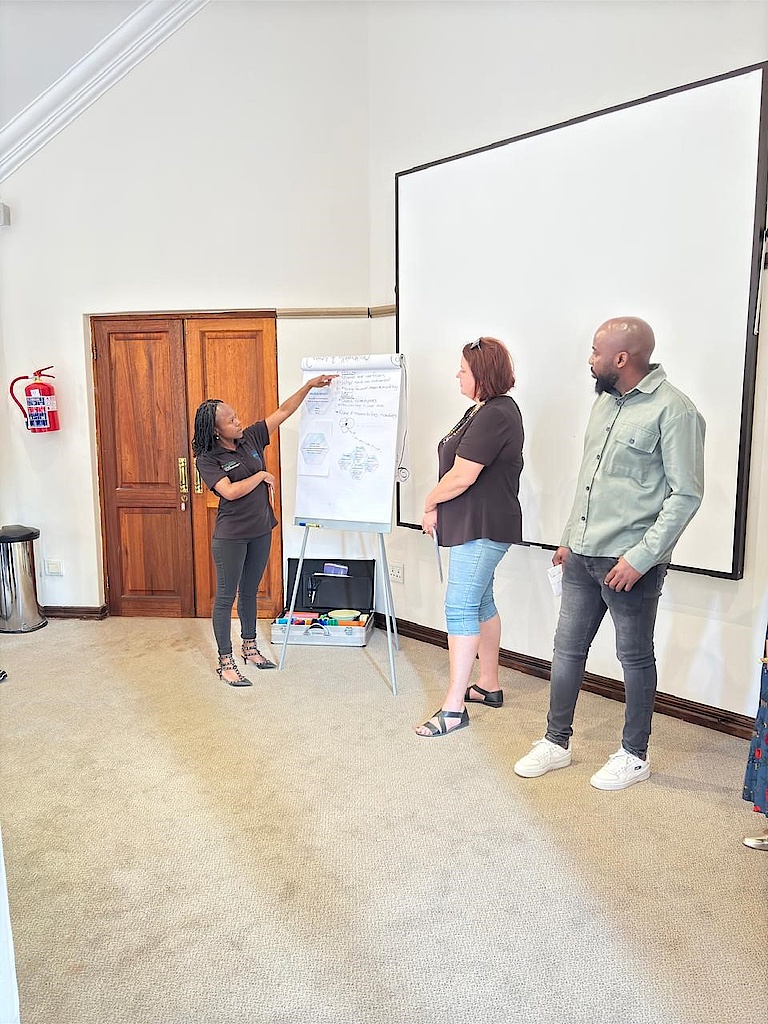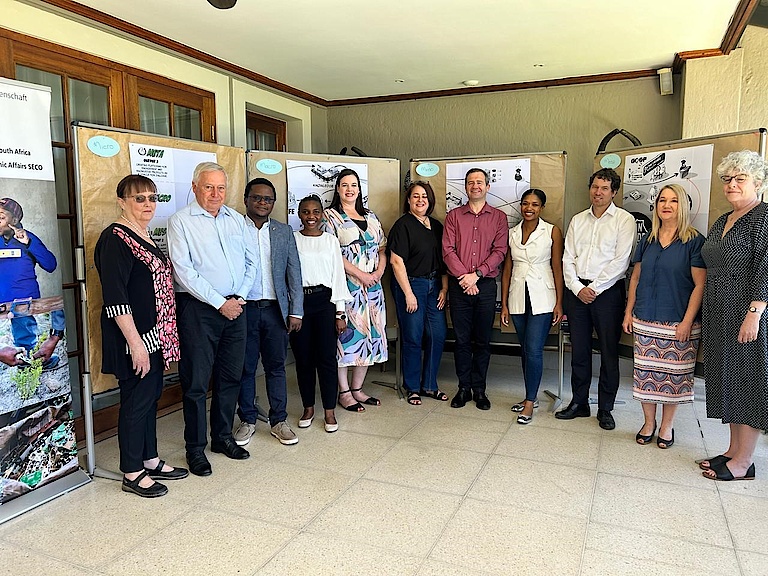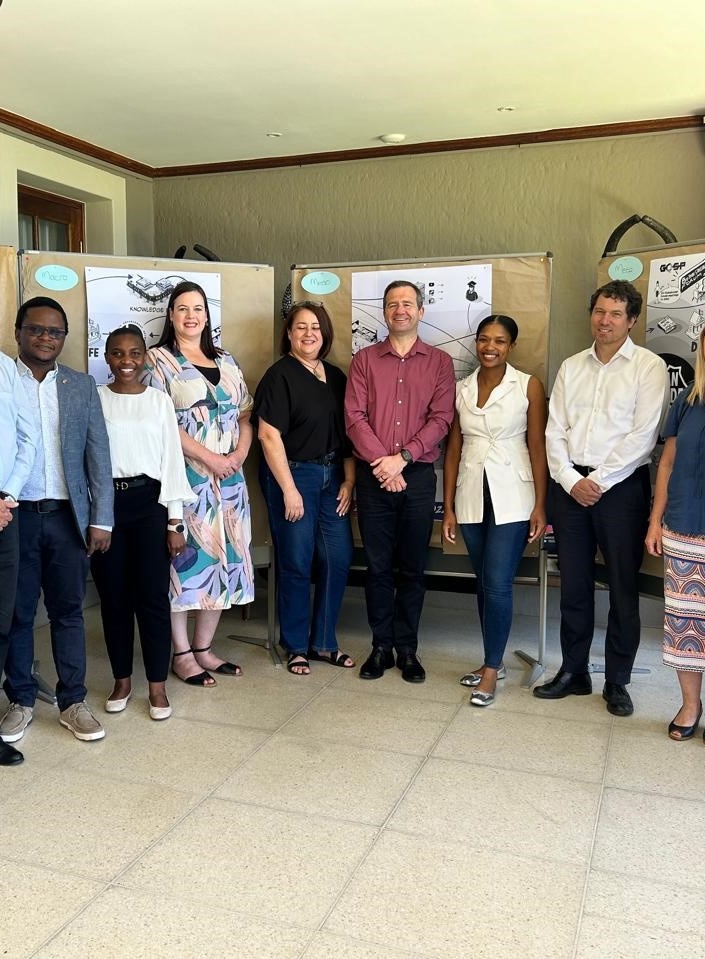The ABioSA project has been given a one-year extension to December 2025. The additional time allows for the project to conduct a Quo Vadis session. This is an in-depth assessment of the project’s achievements and an opportunity to engage with partners and collaborators to coordinate the planning of ABioSA phase III.
The Quo Vadis engagements began with an internal GIZ brainstorming session together with HQ representatives from the ABS Capacity Development Initiative and BioInnovation Africa in July followed by the ABioSA team meeting with the project’s political partner, the DFFE in October, as well as the Swiss State Secretariat for Economic Affairs-supported biotrade sister projects, namely the Global Quality and Standard Programme, the Swiss Import Promotion Programme and the Swiss-South African Intellectual Property Project; SECO was also in attendance.
These engagements provided valuable insights on what should be considered by the project during 2025 when engaging with the broader bioeconomy stakeholders. In addition, they presented an opportunity to learn about the priorities of the DFFE and the other SECO-supported biotrade projects, including the identification of collaborative opportunities.
Guiding ABioSA’s Next Steps: Strengthening SMMEs, Sector Support, and Sustainable Growth in Biodiverse Landscapes

Critically, it emerged during discussions that ABioSA activities going forward need to be rooted in the ‘people, plant and place’ nexus, meaning the context in which the activities take place should guide the work undertaken. It was also agreed that activities should be further designed to be sustainable beyond the project lifespan.
There was recognition that, at a micro level, a systemic approach underpinned by customised technical and financial support to SMMEs was needed to grow the pipeline of emerging SMMEs; this approach would need to note the unique challenges faced by SMMEs and cooperatives in the sector. With regards to sector development and industry wide support, the strengthening of BSOs to support members was confirmed as paramount. Additionally, the bioeconomy in transboundary and biodiverse landscapes was discussed as an area of future expansion.
At the macro level the four-tiered approach towards supporting Access and Benefit-Sharing (ABS) was introduced. To amplify the potential effects of this, it was recognised during the discussions that enhancing transparency towards ABS for universities was important. The role of industry and BSOs towards ABS pre-permit support was also confirmed as critical for further support.
ABioSA's Vision: Fostering Systemic Change through Regenerative Networks and Innovative Partnerships
In terms of the meta level, fostering behavioural social change through Regenerative Network Formation and Action Research Partnerships was also introduced. This is a framework that leverages the regenerative and transformative power of partnerships across various components, such as systematic knowledge and learning network coordination, dialogue forums across social strata, and leveraging innovative potential through the creative curation and design of knowledge products and research partnerships.
It is clear that collaborative engagements with key stakeholders ensures that the Quo Vadis process will set the foundation for a locally relevant ABioSA Phase III. Consequently, throughout 2025, ABioSA will continue to further engagement on each of the 4 systemic competitiveness levels and invites participation from stakeholders of the bioeconomy.

November 2024
